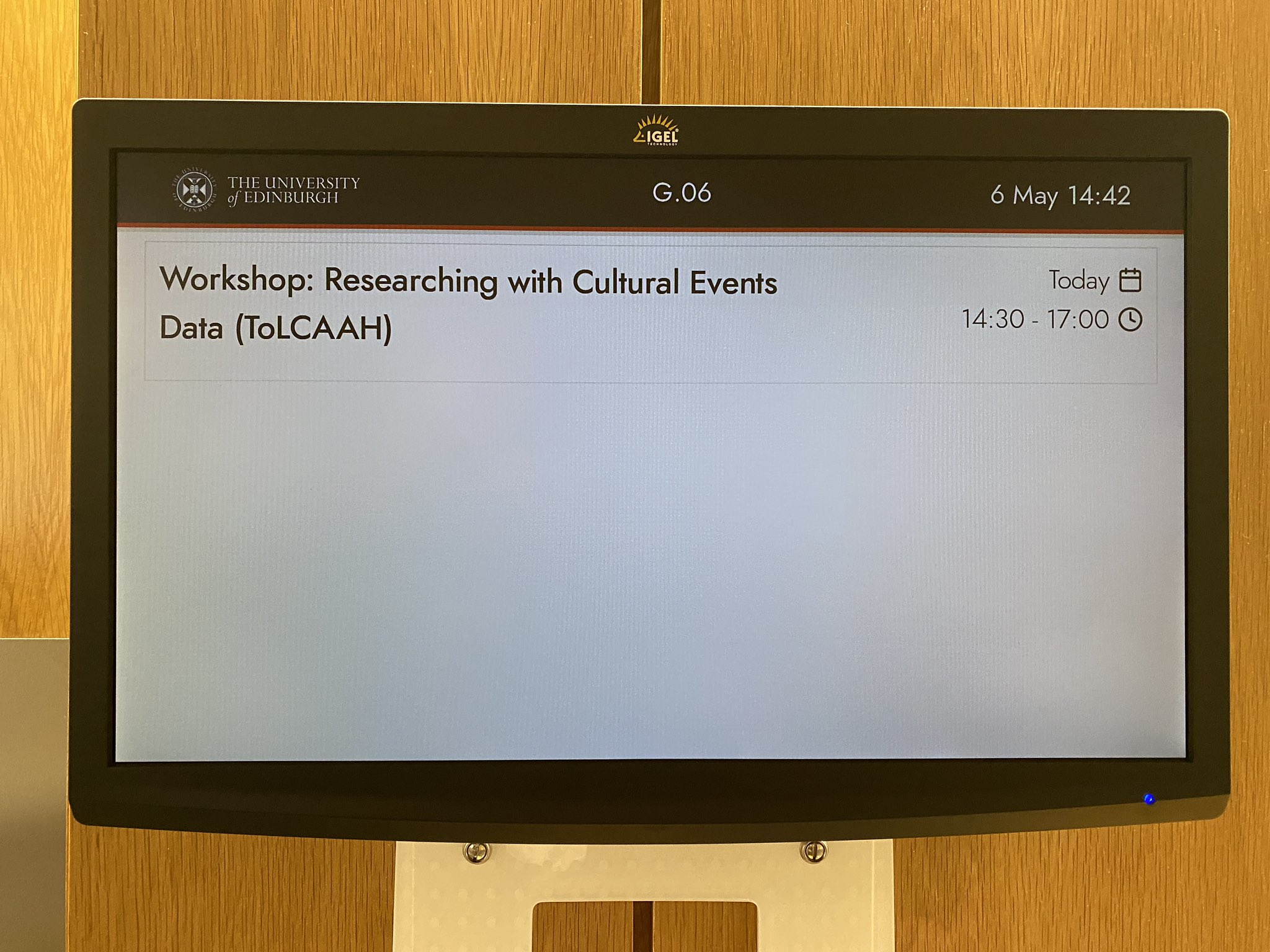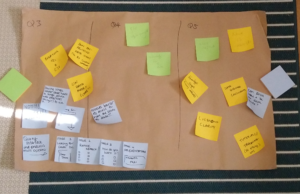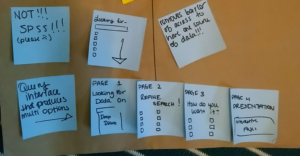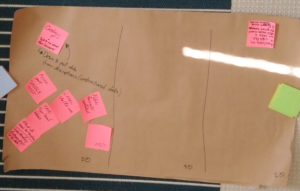Workshop PART TWO

In our workshop, ‘Researching with Cultural Events Data’, we asked our participants about how to design a cultural events data service. We captured the responses visually, shown in the images below. The text in the images is also transcribed below.
Question Two:
Imagine a data service for cultural events data. What would look like to you? How would you access it? Would it be paid for? Which data would you include? Which metadata?

[image description: Sticky notes with the following text. Active cs search. Query interface. Data engineer consultants. Can Rosa come and be our data guide? Licensing clarity. Tutorials / training. Knowledge graph / linking datasets. Acknowledge fear of data. Csv. Excel. Help to query API. UN Data Mart. Everyone hearts a csv. Some pre-processed data views (e.g. by location, category). Removes barrier of access to have one source of data. Having single source data needs a single source web page / app / thing (?) to use it. NOT SSPS!!! (please). Query interface that produces multiple options.]

[image description: Detail of sticky notes representing multiple stages of a search query.]

[image description: Sticky notes with the following text. Csv. Available on a csv file – see FRED and OECD data sheets for great examples and Europe’s Social Values survey. Public facing and updated. Legal use / re-use. Access point single. Ontology. Desire to pull from descriptions (unstructured data). Robust info about the structure. Understanding of categorisation (of the data). Python, R. Don’t change your tags or infrastructure! Nightmare to recode.]
Findings
Some of the key user needs for a data service are:
- The enduring popularity of the csv format.
- The need for robust documentation and training materials, clear information on legal, copyright issues and licensing, and ongoing support in the form of data engineers’
- The attractiveness of a simple query interface with multiple routes to create and refine a nuanced search query as well as some pre-processed data views.
A huge thank you to all the participants who gave their time and engaged so enthusiastically with our project.
We are also conducting research interviews and a survey (more info and link to survey – there’s a £50 book token up for grabs) to gain multiple perspectives on the uses and value of a UK cultural events data service.



